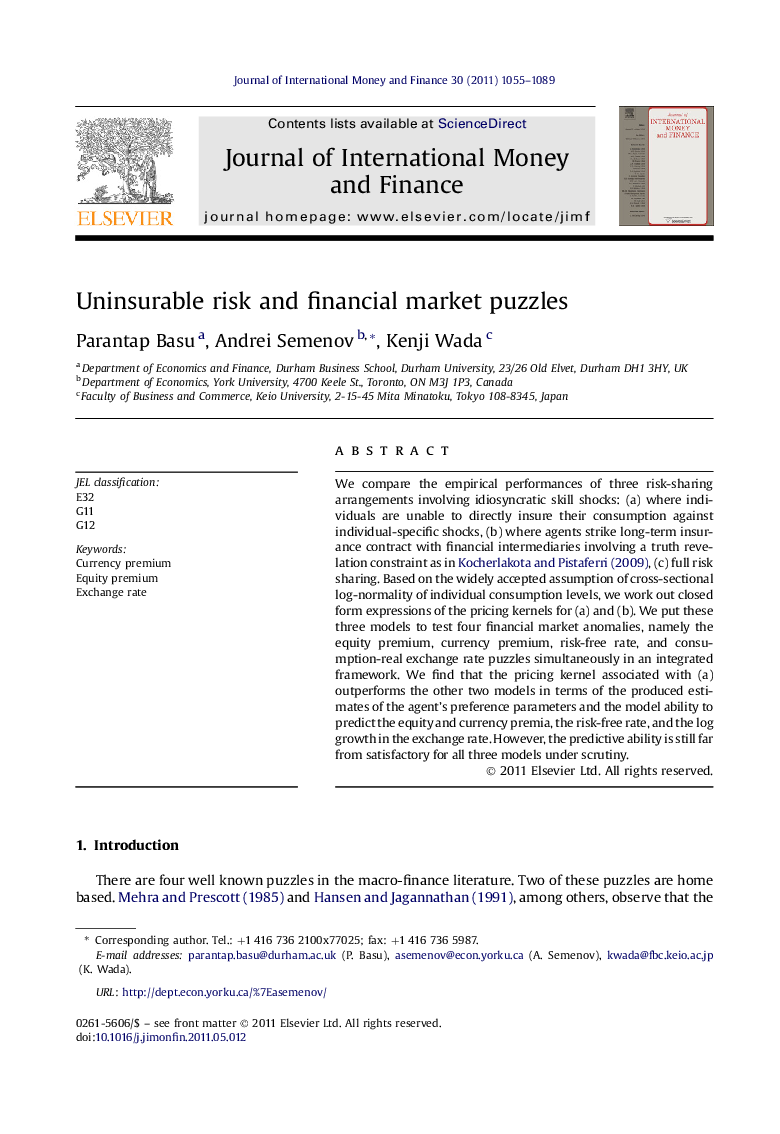| Article ID | Journal | Published Year | Pages | File Type |
|---|---|---|---|---|
| 964724 | Journal of International Money and Finance | 2011 | 35 Pages |
Abstract
We compare the empirical performances of three risk-sharing arrangements involving idiosyncratic skill shocks: (a) where individuals are unable to directly insure their consumption against individual-specific shocks, (b) where agents strike long-term insurance contract with financial intermediaries involving a truth revelation constraint as in Kocherlakota and Pistaferri (2009), (c) full risk sharing. Based on the widely accepted assumption of cross-sectional log-normality of individual consumption levels, we work out closed form expressions of the pricing kernels for (a) and (b). We put these three models to test four financial market anomalies, namely the equity premium, currency premium, risk-free rate, and consumption-real exchange rate puzzles simultaneously in an integrated framework. We find that the pricing kernel associated with (a) outperforms the other two models in terms of the produced estimates of the agent's preference parameters and the model ability to predict the equity and currency premia, the risk-free rate, and the log growth in the exchange rate. However, the predictive ability is still far from satisfactory for all three models under scrutiny.
Keywords
Related Topics
Social Sciences and Humanities
Economics, Econometrics and Finance
Economics and Econometrics
Authors
Parantap Basu, Andrei Semenov, Kenji Wada,
